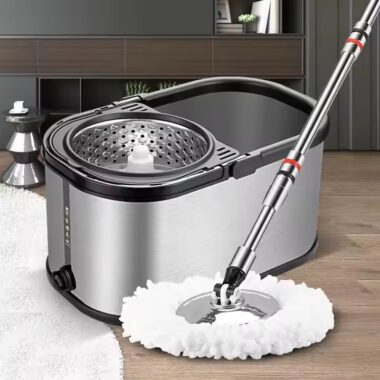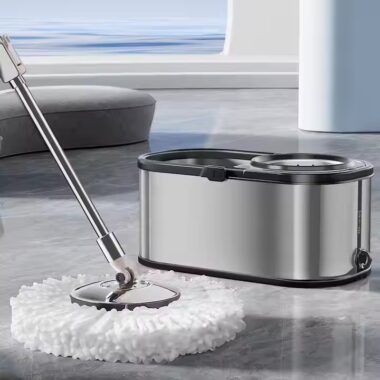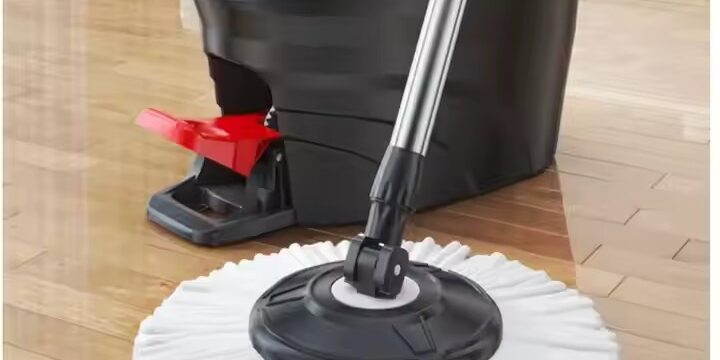✅ Introduction
Flat, cotton, and sponge mops are the backbone of the global cleaning industry. While new mop types like spin and spray models gain attention, these three categories remain highly relevant because of their versatility, affordability, and demand in both household and commercial sectors. For wholesale buyers, understanding how these mops are manufactured in factories helps in making smarter sourcing decisions.
🔹 Flat Mop Production Insights
Flat mops are widely used for commercial cleaning and large surfaces. In factories, production involves:
-
Microfiber or Polyester Materials: These ensure quick drying and streak-free cleaning.
-
Head Design: Factories manufacture both reusable and disposable flat mop heads.
-
Attachment Systems: Velcro strips, pockets, or clips depending on buyer requirements.
Flat mops are a popular wholesale choice because they balance cost and performance. Custom options like handle length and packaging help suppliers tailor them to specific markets.
⭐ Cotton Mop Manufacturing
Cotton mops are classic cleaning tools known for strong absorbency. Factory production focuses on:
-
Material Cutting: Cotton strands or loops are cut in bulk and assembled into mop heads.
-
Durability Enhancements: Some factories blend cotton with polyester for longer lifespan.
-
Handles: Buyers can choose wood, stainless steel, or plastic rods.
Cotton mops are affordable and widely requested in wholesale markets such as hospitality, janitorial services, and supermarkets. Mop factories often receive bulk orders from distributors looking for cost-effective cleaning solutions.
➡️ Sponge Mop Production
Sponge mops are lightweight and convenient, making them ideal for household use. In mop factories, production includes:
-
Foam Material Selection: Factories use PVA sponge or similar absorbent materials.
-
Wringing System: Built-in squeeze mechanisms are assembled for easy water removal.
-
Design Flexibility: Folding sponge mops and detachable sponge heads are common custom requests.
Wholesale buyers favor sponge mops for retail chains and e-commerce platforms, where compact packaging and lightweight shipping are advantages.
✅ Customization Across Mop Types
A custom mop factory offers design variations to make flat, cotton, and sponge mops unique. Buyers can request:
-
Branding through logos and packaging.
-
Handle length adjustments for comfort.
-
Color variations for retail differentiation.
-
Material blends for performance upgrades.
By working directly with a mop supplier, wholesale clients can launch products that stand out in crowded cleaning markets.
🔹 Wholesale Supply Considerations
When ordering flat, cotton, or sponge mops in bulk, buyers should focus on:
-
MOQ (Minimum Order Quantity): Factories usually require 1,000–3,000 units.
-
Lead Time: Production can take 25–40 days depending on order size and customization.
-
Pricing Models: Bulk orders significantly reduce per-unit costs.
-
Export Experience: Reliable factories manage shipping terms like FOB, CIF, or DDP.
These considerations help ensure smooth procurement and timely delivery.
⭐ Quality Control in Production
Consistent quality is essential in wholesale supply. Mop factories implement:
-
Incoming raw material inspections.
-
Mid-production quality checks.
-
Final product testing before shipment.
Factories with ISO or SGS certifications provide added confidence for global buyers.
➡️ Final Thoughts
Flat, cotton, and sponge mops may seem simple, but their demand in wholesale markets proves their long-term value. Each mop type offers unique advantages—flat mops for large areas, cotton mops for absorbency, and sponge mops for convenience.
By working with a professional mop factory, buyers gain access to bulk pricing, custom design options, and consistent quality control. For global suppliers, these three mop categories remain the foundation of cleaning product portfolios, making them reliable investments for wholesale and retail channels alike.









